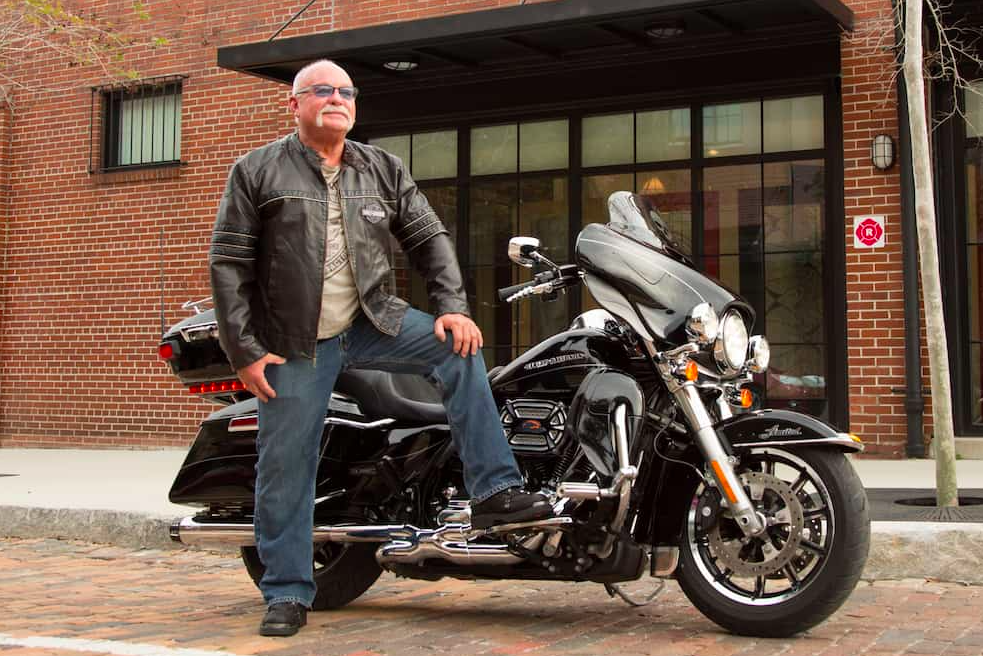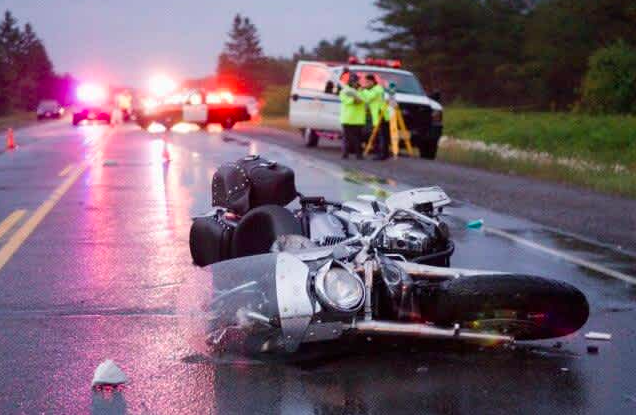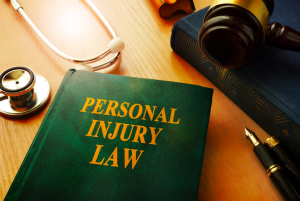The Importance of Hiring the Best Motorcycle Accident Lawyer

Motorcycle Accident Lawyer
Motorcycle accidents can be life-altering events, both physically and legally. In the chaos that follows such an incident, having the proper legal representation becomes not just a choice but a necessity. Whether you’re a seasoned rider with years of experience or a novice on two wheels, understanding why you need the best motorcycle accident lawyer is crucial for safeguarding your rights and securing the compensation you deserve.
Why Do You Need a Motorcycle Accident Lawyer?
Motorcycle accident cases are inherently complex. The severity of injuries, biased perceptions against motorcyclists, and the unfortunate stigma associated with riders often make these cases challenging. It’s not just about seeking compensation for medical bills and damages to your bike; it’s about navigating through a legal landscape that may not always be favorable to motorcyclists.
Navigating the aftermath of a motorcycle accident requires a nuanced understanding of the legal process. A proficient motorcycle accident lawyer can guide you through the complexities, ensuring your rights are protected and advocating for the compensation you deserve.
Qualities to Look for in a Motorcycle Accident Lawyer
Choosing a good lawyer can make all the difference in the result of your case. Experience is paramount, especially when it comes to handling motorcycle accident cases. Glance for a lawyer with a track record of victory in such cases and a deep understanding of local traffic laws and regulations.
The best motorcycle accident lawyers combine legal expertise with a genuine passion for justice. They go beyond the basics of the law, showing a commitment to their clients and a determination to fight for their rights. Research potential attorneys thoroughly, considering their legal credentials and dedication to securing fair compensation for motorcycle accident victims.

Steps to Take After a Motorcycle Accident
In the direct aftermath of a motorcycle accident, ensuring your safety and the safety of others should be your top priority. However, taking specific steps can significantly impact your legal standing later. These include:
- Call Emergency Services: Promptly calling for medical assistance and reporting the accident to the police ensures that an official record is created.
- Gather Evidence: Collecting evidence at the scene is crucial. Take photographs of the accident site, your injuries, and any damage to your motorcycle. Collect contact information from witnesses.
- Seek Medical Attention: Even if your injuries seem minor, seeking medical attention is essential. Some injuries may not manifest immediately, and having a medical record is crucial for your case.
- Do Not Admit Fault: Avoid making statements that may be interpreted as admitting fault. Let the facts and evidence speak for themselves.
By following these steps, you build a solid foundation for your case. Your motorcycle accident lawyer will use this information to construct a compelling narrative supporting your compensation claim.
Common Injuries in Motorcycle Accidents
Understanding the nature of injuries sustained in motorcycle accidents is crucial, both for your physical recovery and the success of your legal proceedings. Motorcycle accidents often result in a range of injuries, including:
- Road Rash: Abrasions and lacerations caused by contact with the road.
- Fractures and Broken Bones: The impact of a collision can lead to severe fractures.
- Head Injuries: Traumatic brain injuries are a significant risk for motorcyclists, even with helmets.
- Spinal Cord Injuries: Injuries to the spinal cord can have long-lasting consequences.
The extent of physical harm directly affects the legal proceedings. Your lawyer should comprehend the legal intricacies and understand the medical aspects of your case. This dual understanding is vital for building a comprehensive subject that addresses immediate and long-term needs.
Navigating Insurance Claims for Motorcycle Accidents
Dealing with insurance companies can be a daunting task. Understanding the intricacies of the claims process and being aware of potential pitfalls during negotiations can significantly affect the compensation you ultimately receive. Here are some key considerations:
- Prompt Reporting: Report the accident to your insurance company immediately. A delay in reporting may result in complications.
- Be Cautious with Statements: While interacting with insurance adjusters, be cautious about your statements. Stick to the facts and avoid speculation.
- Document Everything: Keep a detailed record of all communication with the insurance company. This includes emails, letters, and phone conversations.
- Evaluate Settlement Offers Carefully: Insurance companies may offer settlements early. Please consult your lawyer before accepting any offers to ensure they adequately cover your damages.
Understanding how to navigate the insurance claims process is essential for securing fair compensation. Your motorcycle accident lawyer will work with you to build a compelling case, presenting the facts in a way that maximizes your chances of a favorable outcome.
Legal Recourse for Motorcycle Accident Victims
Beyond insurance claims, victims of motorcycle accidents may have the option to pursue personal injury lawsuits. Establishing negligence is crucial to the success of such cases. Here are key considerations:
- Determining Negligence: Your lawyer will work to establish that the other party was negligent and that their negligence directly led to the accident.
- Proving Damages: Demonstrating the extent of your economic and non-economic damages is crucial for a successful personal injury lawsuit.
- Calculating Compensation: The compensation sought in a personal injury lawsuit may include medical expenses, lost wages, pain and suffering, and other damages.
- Legal Representation: Having a skilled motorcycle accident lawyer by your side is essential for navigating the complexities of personal injury lawsuits.
The legal recourse available to motorcycle accident victims extends beyond insurance claims. Pursuing a personal injury lawsuit can provide a more comprehensive avenue for seeking the compensation needed for recovery and moving forward with life.
How to Choose the Right Motorcycle Accident Lawyer
Choosing the right lawyer is a critical decision that can significantly impact the trajectory of your case. Here are steps to guide you in selecting the best motorcycle accident lawyer for your needs:
- Research Potential Lawyers: Research potential lawyers specializing in motorcycle accident cases. Look for reviews, testimonials, and case results.
- Check Experience and Track Record: Assess each lawyer’s experience and track record. An attorney with a history of successful motorcycle accident cases is more likely to secure a favorable outcome for you.
- Evaluate Communication Skills: Effective communication is crucial in legal proceedings. During initial consultations, assess the lawyer’s ability to explain complex legal concepts in a way you can understand.
- Consider Legal Fees: Understand the lawyer’s fee structure. Many motorcycle accident lawyers work on a contingency basis, meaning they only get paid if you win your case.
- Ask About the Legal Process: Inquire about the legal process involved in your case. A transparent and communicative lawyer will keep you informed about each step.
Choosing the right motorcycle accident lawyer is a process that requires careful consideration. The goal is to find an attorney who possesses the necessary legal expertise, communicates effectively, and demonstrates a genuine commitment to your case.
The Role of Evidence in Motorcycle Accident Cases
A strong case relies on solid evidence. Building a compelling narrative requires a thorough understanding of the types of evidence crucial for a motorcycle accident case. Here are key considerations:
- Eyewitness Accounts: Statements from witnesses can provide valuable perspectives on the events leading up to the accident.
- Photographic Evidence: Photographs of the accident scene, vehicle damage, and injuries can be robust visual evidence.
- Medical Records: Comprehensive medical records establish the extent of your injuries and the treatment required.
- Accident Reconstruction: In some cases, accident reconstruction may be necessary to demonstrate how the events unfolded.
- Police Reports: Official police reports provide an unbiased account of the accident and may contain critical details.
Gathering and preserving evidence effectively is a skill that the best motorcycle accident lawyers possess. Your attorney will work to compile a robust collection of evidence that strengthens your case and supports your compensation claims.
Factors Affecting Compensation in Motorcycle Accident Cases
Economic and non-economic factors influence compensation in motorcycle accident cases. Understanding these factors is crucial for managing expectations and building a case accurately reflecting the damages incurred. Key considerations include:
- Economic Damages include medical expenses, property damage, and lost wages due to time away from work.
- Non-Economic Damages: Pain and suffering, emotional distress, and loss of enjoyment of life fall under non-economic damages.
- Contributory Negligence: If you are found partially at fault for the accident, it can impact the total compensation you receive.
- Insurance Policy Limits: The at-fault party’s insurance policy limits may affect the maximum compensation available.
- Severity of Injuries: The extent of your injuries and their impact on your life play a significant role in determining compensation.
Navigating these factors requires a nuanced understanding of both legal and personal aspects. The best motorcycle accident lawyers will work to maximize your compensation by strategically addressing each element.
Navigating Court Proceedings for Motorcycle Accident Cases
Understanding the legal process, from filing a claim to reaching a settlement or going to trial, is crucial for anyone involved in a motorcycle accident case. Here is an overview of the key stages:
- Filing the Complaint: Initiate legal proceedings by filing a complaint against the at-fault party.
- Discovery Process: Both parties exchange information and evidence in a phase known as discovery.
- Negotiations and Settlement: Attempting to negotiate a settlement with the at-fault party or their insurance company.
- Mediation or Arbitration: In some cases, parties may opt for mediation or arbitration as alternative dispute resolution methods.
- Trial: If a settlement cannot be reached, the case proceeds to where a judge or jury determines the outcome.
Each stage of the legal process requires careful consideration and strategic decision-making. Having a motorcycle accident lawyer who is well-versed in court proceedings is essential for a favorable outcome.
Recent Legal Developments in Motorcycle Accident Cases
Staying abreast of any recent changes in laws or regulations related to motorcycle accidents is essential for both lawyers and victims. Legal developments may impact the rights of motorcycle accident victims and the strategies employed in pursuing compensation. Considerations include:
- Changes in Liability Laws: Alterations in liability laws may affect how fault is assigned in accidents.
- Insurance Requirements: Changes in insurance requirements may impact the available coverage for motorcycle accidents.
- Statute of Limitations: Any adjustments to the statute of limitations can affect the timeframe within which legal action must be initiated.
- Safety Regulations: Updates in safety regulations may impact the determination of negligence in accidents.
Being informed about recent legal developments allows your motorcycle accident lawyer to tailor their approach to align with the current legal landscape.
Comparing Motorcycle Accident Cases to Other Personal Injury Cases
While personal injury cases share common elements, motorcycle accident cases possess unique aspects that require careful consideration. Understanding these distinctions is vital for building a tailored legal strategy that addresses motorcycle accidents’ specific challenges and nuances. Key differences include:
- Perceptions and Bias: Motorcyclists may face bias and negative perceptions, impacting how their cases are perceived.
- Severity of Injuries: Motorcycle accidents often result in more severe injuries than other personal injury cases.
- Vulnerability of Riders: The vulnerability of motorcyclists on the road influences how accidents occur and the resulting damages.
- Road Dynamics: The dynamics of a motorcycle accident, including maneuverability and road conditions, differ significantly from other types of accidents.
Acknowledging and understanding these unique aspects ensures that your motorcycle accident lawyer approaches your case with a tailored strategy that addresses the specific challenges you may face.
Frequently Asked Questions About Motorcycle Accident Lawyers
Q: How much do motorcycle accident lawyers charge?
A: Legal fees can vary, but many motorcycle accident lawyers work on a contingency basis. This means they only get paid if you win your case. It’s crucial to discuss fee structures during your initial consultations.
Q: How long does it take to settle a motorcycle accident case?
A: The timeline for settling a motorcycle accident case can vary widely. Factors such as the case’s complexity, negotiations with insurance companies, and court proceedings, if necessary, all contribute to the duration. Your lawyer can provide a more accurate estimate based on the specifics of your case.
Q: What if I can’t afford a lawyer?
A: Many motorcycle accident lawyers offer free initial consultations, allowing you to discuss your case without upfront costs. Additionally, some lawyers work on a contingency basis, meaning their fees are contingent on winning your case. This can be a viable option for those who cannot afford traditional legal fees.
Q: Can I handle a motorcycle accident case without a lawyer?
A: While it’s technically possible to handle a motorcycle accident case without a lawyer, the complexities involved often make legal representation advisable. Lawyers have the experience and knowledge needed to navigate the intricacies of these cases, increasing the likelihood of a favorable outcome.
Q: What if the other party doesn’t have insurance?
A: If the at-fault party doesn’t have insurance, your lawyer will explore alternative avenues for compensation. This may include utilizing your uninsured motorist coverage or pursuing the at-fault party personally.
Conclusion
In the aftermath of a motorcycle accident, securing the services of the best motorcycle accident lawyer is not just a legal necessity; it’s a strategic move to safeguard your rights and maximize your chances of fair compensation. From navigating insurance claims to understanding the intricacies of court proceedings, having a skilled advocate by your side can make the difference between a satisfactory settlement and a prolonged legal battle.
Remember, your choice of a lawyer is a crucial decision that can shape the trajectory of your case. Do your research, ask questions, and choose an attorney who is experienced and genuinely dedicated to fighting for your rights.
In conclusion, the road to recovery after a motorcycle accident is multifaceted, involving both physical healing and legal navigation. With the right motorcycle accident lawyer, you can confidently navigate this journey, knowing that your rights are protected and justice is being pursued on your behalf.




